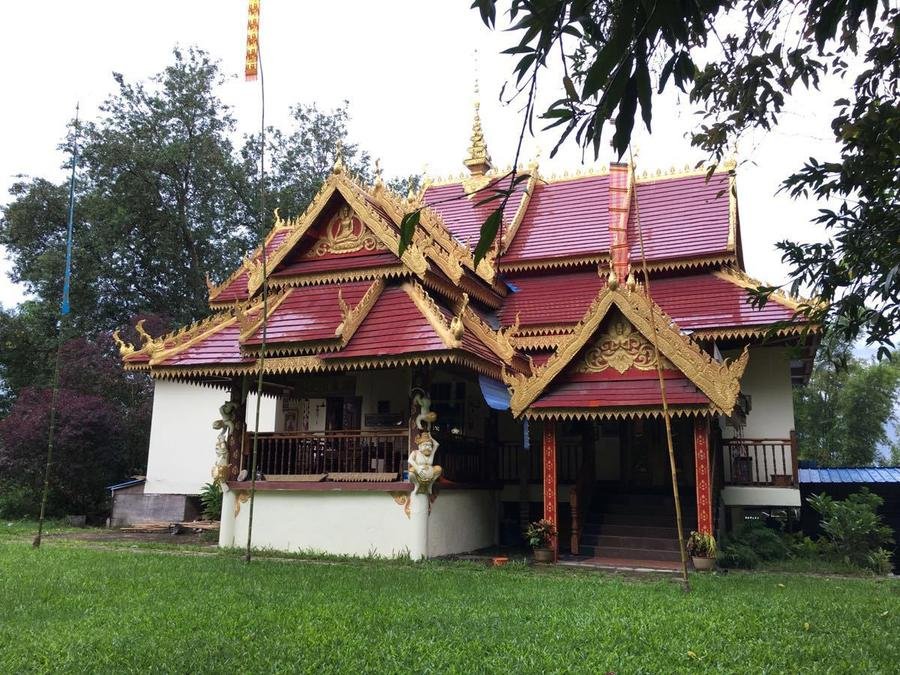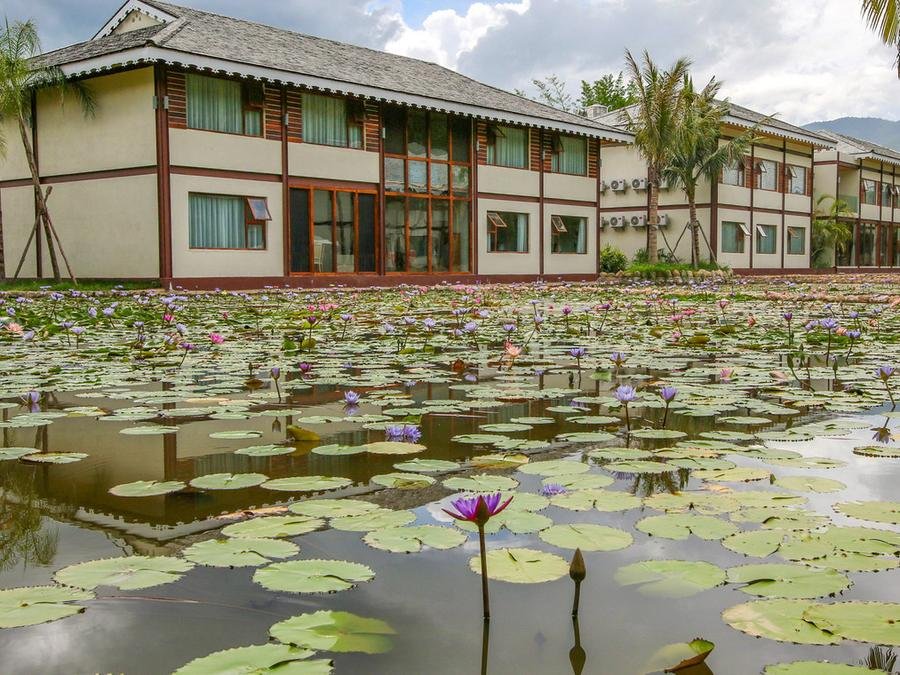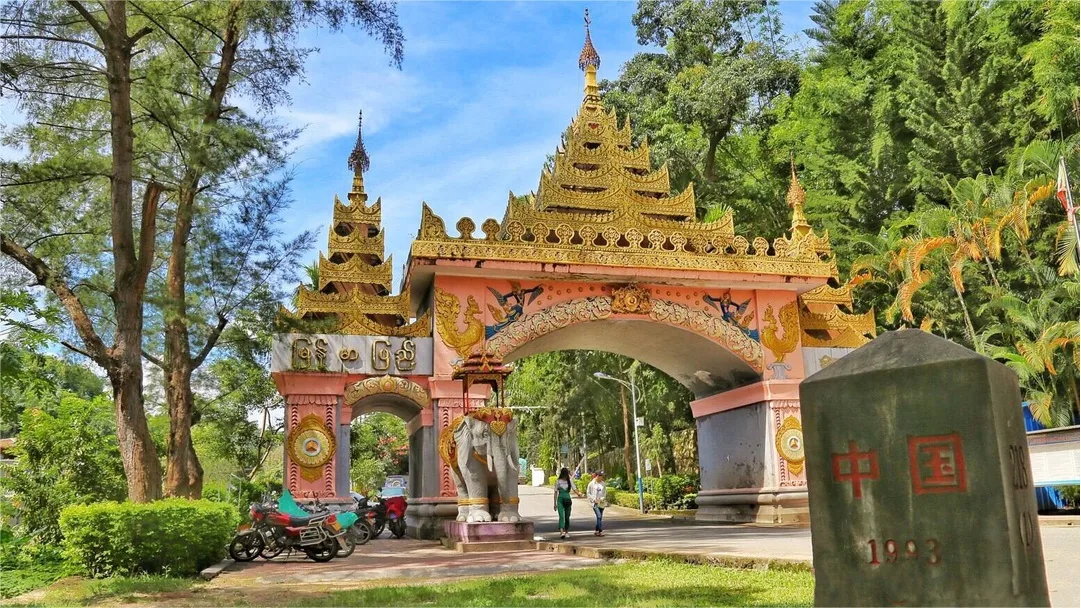Mengjinglai Village (勐景来), located in the border region between China and Myanmar, covers an area of 5.6 square kilometers and offers a picturesque view across the river to Xiaomengla, the capital of the fourth special region of Shan State in Myanmar, known for its tourism. The clear Daluo River flows past the western side of the village, forming a natural border, earning Mengjinglai the nickname “China-Myanmar First Village.”
The name “Mengjinglai” comes from the Dai language: “Meng” means village, and “Jinglai” translates to “the shadow of a dragon.” According to legend, the Heavenly King Zhaoshutun chased a golden deer to this location. Later, people discovered the faint shadow of a dragon here. Expecting the arrival of the Heavenly King, they settled and built the village, thus naming it “Jinglai.”
Mengjinglai is a typical traditional Dai village adjacent to Myanmar, with frequent interactions and intermarriages between the Dai people and the Shan ethnic group from Myanmar, resulting in a mixed Dai-Shan community. The scenic area covers 5.6 square kilometers, featuring over a hundred acres of paddy fields and numerous fish ponds, presenting a natural and authentic rural landscape. The village is adorned with 58 stupas, a millennium-old Bodhi tree, and retains a rustic charm. The 114 Dai households preserve their traditional living arrangements and lifestyle, deeply rooted in their beliefs and customs. The village showcases the rich cultural heritage of Theravada Buddhism, with its temples, stupas, Bodhi trees, and ancient wells.
Table of Contents
Basic Information
| Estimated Length of Tour | Half a day |
| Ticket Price | 50 RMB |
| Opening Hours | 9.00 – 17.00; Last admission: 16.00 |
| Telephone Number | 0086-0691-5566828 0086-0691-5566880 |
Location and Transportation
Mengjinglai Village is located in Menghai County, Xishuangbanna Dai Autonomous Prefecture, Yunnan Province. It is situated 5 kilometers from the Daluo border crossing along the Kunluo Highway.
To get there, visitors can take a minibus from the Xishuangbanna Prefecture Bus Station in Jinghong City to Daluo. The journey takes approximately 2.5 hours, with buses departing every 20 minutes.
Highlights of Mengjinglai
Key Attractions

Village Gate: The main entrance to Mengjinglai, welcoming visitors to explore its cultural heritage.
Stupa Forest: A collection of stupas scattered throughout the village, offering a glimpse into the spiritual life of the Dai people.
Buddhist Temples: Temples that serve as centers of worship and community gatherings.
Dai Traditional Culture Exhibition Hall: A place to learn about the traditional customs and heritage of the Dai people.
Traditional Dai Stilt Houses: The distinctive “Ganlan” style architecture of Dai homes, elevated on stilts.
Boundary Marker: A symbol of the village’s position on the China-Myanmar border.
Natural Attractions

Sacred Tree: A revered tree believed to possess spiritual significance.
Sacred Spring: An ancient well considered to have holy water.
Couple Tree: Two trees entwined, symbolizing eternal love.
Ancient Tree Wonders: Remarkable old trees that have stood for centuries.
Peacock River: A river named for its resemblance to a peacock’s spread tail.
Boundary River: The river marking the natural border between China and Myanmar.
Boundary Marker: A symbol of the village’s position on the China-Myanmar border.
Traditional Crafts and Activities

Ancient Sugar Pressing: Demonstrations of traditional sugar extraction methods.
Slow Wheel Pottery: Traditional pottery-making techniques.
Dai Brocade Weaving: The intricate process of making Dai textiles.
Dai Paper Making: The art of crafting paper using traditional methods.
Traditional Brewing: The process of making traditional Dai alcohol.
Blacksmithing: Demonstrations of traditional ironwork.
Dai Dance Performances: Cultural dance performances showcasing Dai traditions.


